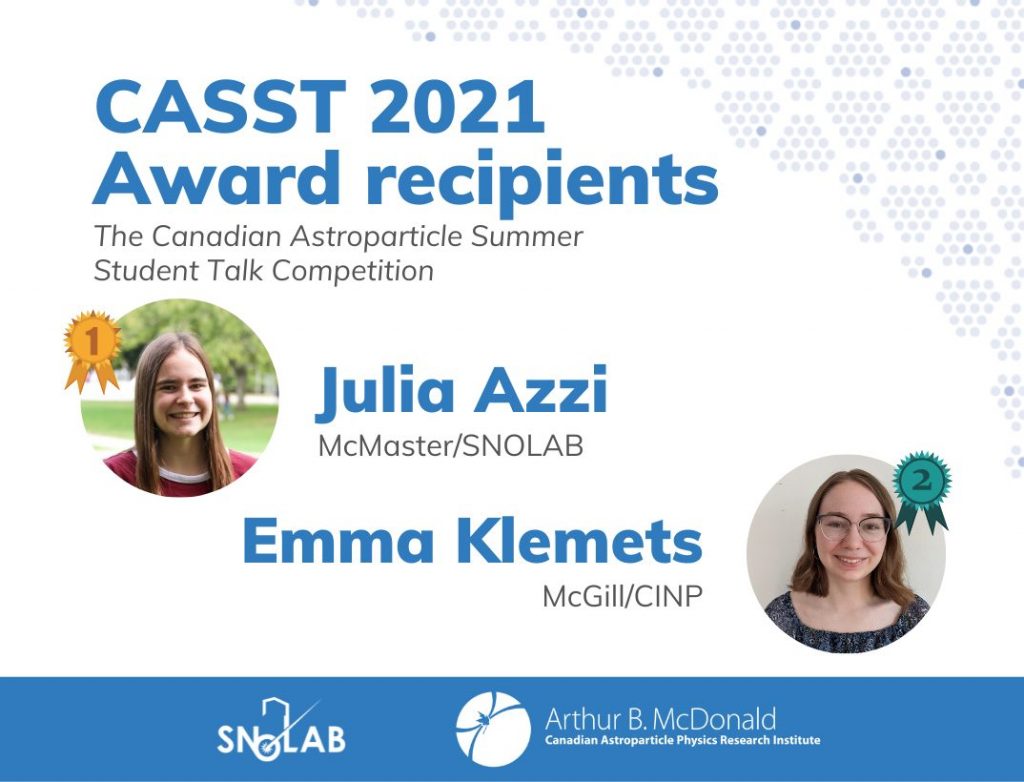Inaugural Canadian Astroparticle Summer Student Talk Competition a success

The 2021 Canadian Astroparticle Summer Student Talk competition (CASST) has concluded after two days of impressive talks by undergraduate students from across Canada, India, and the United States. An international panel of nine judges reviewed 44 presentations by students from 15 institutions about their summer research.
SNOLAB has hosted a student talk competition annually since 2010, organized by Senior Research Scientist, Dr. Christine Kraus. This year, Kraus collaborated with Queen’s University PhD candidate Benjamin Tam at the McDonald Institute to host our largest yet summer student talk competition.
“The past two years, during the pandemic, we’ve been running a national virtual workshop at the beginning of the summer to welcome astroparticle summer students,” said Kraus. “It made sense to invite the same crowd to present their research together at the student talk competition.”
The first-place prize this year went to Julia Azzi from McMaster University Medical and Biological Physics. Her summer research, “Radon Measurements and the Lucas Cell System” was supported by SNOLAB and supervised by Dr. Nasim Fatemighomi.
The second-place finisher was Emma Klemets of McGill University Physics. Her summer research, “Cherenkov Measurements with Chroma for nEXO’s Muon Veto” was supported by the Canadian Institute of Nuclear Physics and supervised by Dr. Thomas Brunner.
As the grand prize winners, Azzi and Klemets will be sponsored by SNOLAB and the McDonald Institute to participate in the 2022 Canadian Association of Physicists Congress at McMaster University in Hamilton, Ontario. They will also be giving their award-winning presentations at the National Meeting of the Canadian Astroparticle Physics Community.
Four runner-up students also received awards and recognition from SNOLAB and the McDonald Institute: Abbygale Swadling (University of Calgary) received 3rd place, Clara Mitchinson (Queen’s University) and Alexander Pleava (McMaster University/SNOLAB) shared the 4th place position, and Anthony Allega (University of Waterloo/Queen’s University) received 6th place.
When asked about the future of the CASST, Kraus says “the broader, virtual event went really well. It’s possible that this event could grow into a full conference with even more student engagement.”
The SNOLAB team extends their congratulations to each of the participants and to the McDonald Institute for their partnership this year.